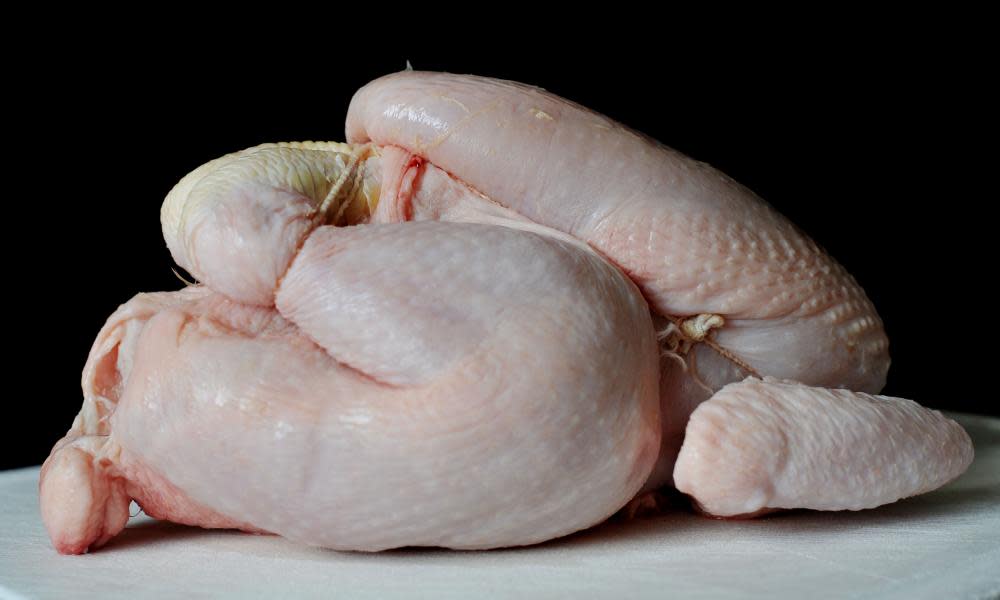Food deals are the forgotten bread and butter issues of Brexit

Rulers, wrote the Roman poet Juvenal, survive by providing the people with bread and circuses. His observation has acquired a twisted relevance in recent years. Brexit has become a political circus without the laughs while the duty to provide bread has become criminally neglected. These two aberrations are deeply connected.
Food policy has been a central concern of governments throughout history. As recently as 1957, article 39 of the treaty of Rome, the EU’s founding document, set out the aims of a planned common agricultural policy (CAP), which included ensuring “a fair standard of living for the agricultural community”, “the availability of supplies” and “that supplies reach consumers at reasonable prices”.
The eventual CAP that emerged fell well short of these ideals, but it is striking how clear it was to those who signed up that it was vitally important to have a food system, from producer to consumer, that was efficient and fair to all.
However, decades of seeming plenty, with supermarket aisles full of cheap, enticing products, moved food off the list of political priorities. cold war images of people queuing for bread in the Soviet Union reinforced the belief that government’s only role in feeding its people was to enable a free market. The fundamental principle of food policy was reduced to Adam Smith’s famous line: “It is not from the benevolence of the butcher, the brewer, or the baker that we expect our dinner, but from their regard to their own interest.”
Two new reports published today suggest that with Brexit looming we need to put food back at the top of the political agenda. A policy briefing by the Soil Association shows how the rules of global food trade affect public health as well as economies. It suggests that if Britain entered into a trade deal with the US along the lines of the North American Free Trade Area (Nafta), we can expect rising obesity. This is exactly what happened in Canada and Mexico after they joined Nafta. As cheaper, ultra-processed, high-sugar foods became more widely imported from the US, people understandably ate more of them.
The same briefing cites a study from the Harvard School of Public Health which shows that increases in obesity in countries such as India and China are associated with trade liberalisation. Open trade is like an open mind: if it’s too open, everyone pours in their junk.
The briefing illustrates how when we think about combating obesity we often focus too much on public education and not enough on the design of food systems. The word “design” is deliberate. The “market” is not a natural entity. The nature of any market is shaped by the rules and regulations that govern it. The US market with its perverse subsidies delivers foods stuffed with high-fructose corn syrup. Almost all markets, by refusing to make producers pay for the negative environmental impacts of their farming methods, reward those who use the most rapacious methods and punish those whose careful stewardship costs more in the short term. The question is not whether governments fashion the food supply, but how they choose to do so.
One reason why governments have been reluctant to step up to the dinner plate is that food policy has not been the electorate’s priority. Gradually, however, people are waking up to the reality that it should be. The rise of demand for food banks has suddenly and shockingly made it obvious that food plays a central role in social inequality. This is true at every stage in the supply chain. Much of the food we bought this winter was imported from Morocco and Spain where a poorly paid, often mistreated, migrant workforce toils to provide us with fresh fruit and vegetables all year round.
A survey published today to mark the 20th anniversary of the founding of the Food Ethics Council (of which I am a member) suggests that awareness of these inequities is slowly growing: 45% of the UK population thinks that the food system is unfair to people working in food and farming in developing countries, with only 19% believing it is fair. Among those aged 16 to 24, the number judging it unfair rises to a clear majority of 55%, with a similar proportion judging the system unfair to farm animals. Sizeable minorities also believe the way our food is produced and consumed is unfair to the UK population and farm workers.
When asked whether Brexit will make the system more or less fair, the country seems divided almost equally between those who think it will, those who think it won’t and those who don’t know. This is a good advertisement for the wisdom of crowds. Brexit provides an opportunity for the UK to lead a race to the top by improving standards, or a race to the bottom in which we light a bonfire of regulations in a shortsighted attempt to undercut our competitors. It’s anyone’s guess which route we’ll take.
Many in the food world genuinely believe Michael Gove’s avowed commitment to use Brexit to raise, not lower, standards. But he is part of a government that also includes free-market fundamentalists such as Liam Fox, the international trade secretary, who last year went against Gove by defending the potential importation of cheap chlorinated chicken as part of a UK-US trade deal, before pedalling back a few days later.
How this issue is resolved will not just affect the price of prosecco and parma ham. It will affect health equality, the most important equality of all. There is a reason we have the expression “bread and butter issues” and it is time both government and the opposition put them at the heart of their Brexit strategies.
• Julian Baggini is a British philosopher

 Yahoo News
Yahoo News 
